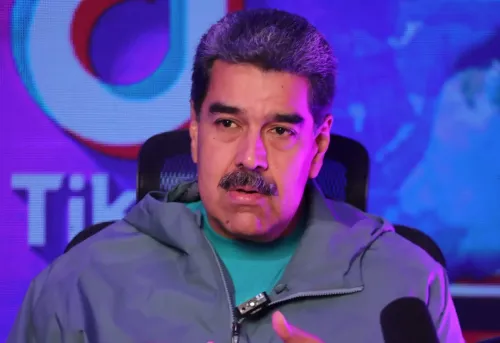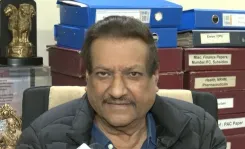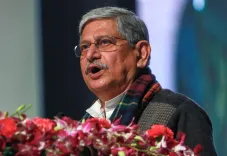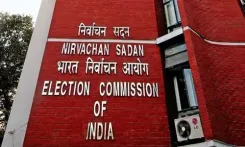Does Maldives Hold a 'Special Place' in India's Neighbourhood First Policy?
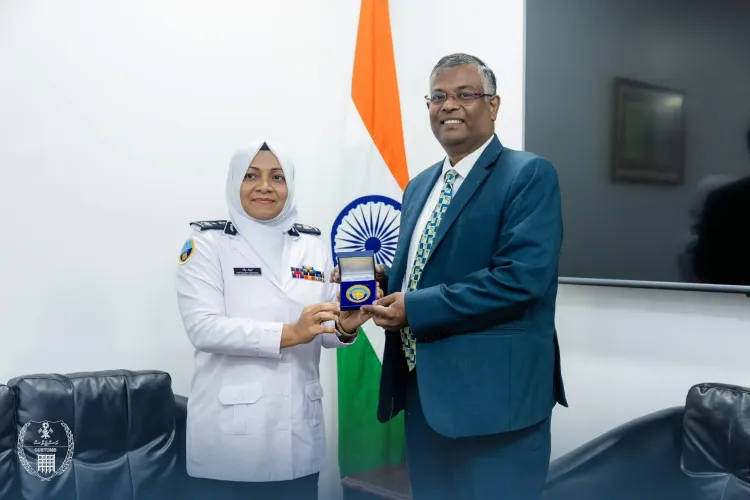
Synopsis
Key Takeaways
- Strong Bilateral Ties: India and Maldives maintain a close relationship independent of external influences.
- Significant Visit: PM Modi's upcoming visit marks important diplomatic milestones.
- Focus on Development: India continues to be a major development partner for the Maldives.
- Tourism Impact: India is a key contributor to the Maldives' tourism sector.
- Future Cooperation: New agreements are expected to enhance collaboration between the two nations.
Male, July 24 (NationPress) India's High Commissioner to the Maldives, G. Balasubramanian, stated on Thursday that the relationship between the two nations is free from any external influence, emphasizing that the Indian Ocean nation holds a 'special place' in India's 'Neighbourhood First' policy.
In an interview with IANS, prior to Prime Minister Narendra Modi's upcoming two-day visit to the Maldives starting Friday, the Indian envoy underscored the importance of enhancing bilateral relations, noting that PM Modi will be the first head of State to visit the Maldives since President Mohamed Muizzu took office.
Balasubramanian highlighted India's contributions to the development of the Maldives, mentioning several agreements that are anticipated to be finalized during PM Modi's visit.
Excerpts:
IANS: How will PM Modi's visit to the Maldives enhance bilateral relations?
G. Balasubramanian: This visit is crucial. Prime Minister Narendra Modi is visiting the Maldives at the invitation of President Mohamed Muizzu to mark the 60th anniversary of their Independence Day. He will arrive on July 25 and depart on July 26.
This is an essential visit for reinforcing the bilateral ties between our nations. It will be PM Modi's third visit to the Maldives, following trips in 2018 and 2019. This also marks the first visit of a State leader under President Muizzu's administration, as well as the first time since 2017 that the Maldives has invited a guest of honour for Independence Day celebrations.
The Maldives' 60th Independence Day coincides with the sixtieth anniversary of diplomatic relations between our nations. India was among the first countries to acknowledge the Maldives' independence in 1965, fostering a long-standing friendship.
To celebrate this significant milestone, our Prime Minister and the President of the Maldives will unveil a commemorative stamp. This is yet another pivotal moment in our relationship.
IANS: Do you believe that China's influence in the region is a concern?
G. Balasubramanian: I consider our relationship with any country to be independent and distinct from our relations with other nations.
Our ties with the Maldives are founded on historical bonds and geographical proximity. Our Prime Minister has reiterated that the 'Neighbourhood First' policy is fundamental to Indian diplomacy, with the Maldives holding a special place within it.
IANS: What events are planned during the Prime Minister's visit?
G. Balasubramanian: Following the Independence Day event on July 26, he will engage in bilateral discussions with President Muizzu. The schedule also includes inaugurating various projects, signing MOUs, and exchanging agreements. It will be a busy agenda for our Prime Minister.
Both leaders will review the progress made on the vision document established last year during President Muizzu's state visit to India in October 2024, which focuses on a comprehensive partnership in economic and maritime security.
We are also set to sign several MOUs, a key aspect of this official visit.
IANS: What new MOUs are being proposed between the two nations?
G. Balasubramanian: We have been collaborating closely, and we will be addressing matters related to commerce, health, finance, and the fisheries sector, among others. These areas have seen significant cooperation, particularly in capacity building and training.
IANS: How is India contributing to the Maldives' tourism sector?
G. Balasubramanian: We are the sixth-largest source of tourists to the Maldives, with about 140,000 Indian visitors last year. By June of this year, over 60,000 Indians have already traveled to the Maldives.
It's noteworthy that the one millionth tourist to the Maldives in 2025 is projected to be Indian.
IANS: Are there any anticipated agreements to be finalized during this visit?
G. Balasubramanian: We are working on several significant areas, including an announcement likely concerning Fintech. We've also established terms for negotiating a Free Trade Agreement, which is crucial for both countries. Additionally, we are focusing on cooperation in fisheries, capacity building, digital public infrastructure, and the Indian pharmacopoeia, all of which will be mutually beneficial.
IANS: Can you elaborate on India's role in the Maldives' development?
G. Balasubramanian: India has been a major development partner for the Maldives. Since 2014, our support has included infrastructure development, capacity building, and emergency financial assistance, with total aid exceeding $3 billion.
Many projects in the Maldives are high-impact community development initiatives funded through grants from the Indian government. Various lines of credit and buyers' credit projects have also been established.
For instance, our Prime Minister will hand over around 4,000 housing units constructed under buyer's credit, while other community development projects will also be delivered, reflecting our ongoing cooperation.
Projects funded under the Line of Credit are being executed in Addu and other regions and will also be presented during this visit.
IANS: Will the Prime Minister have any meetings apart from official events?
G. Balasubramanian: Yes, he will engage in some private meetings, including interactions with the diaspora. He will meet ITEC candidates trained in India and participants from the 'Bharat ko Janiye' quiz, blending official and private functions throughout his visit.





